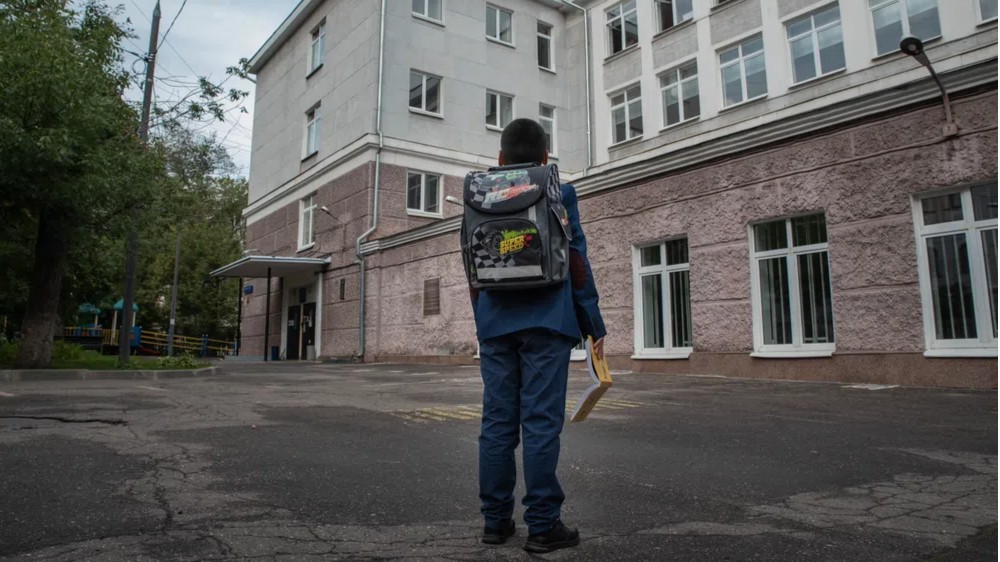Here what’s in store for you this week:
- We bring you yet another disturbing expose on how electoral fraud became the norm in Putin’s Russia;
- Our data investigations team spots the link: flare-ups in the Donbas war often correspond with Kremlin’s political pressure on Ukraine;
- Plus, migrant kids are increasingly neglected by the Russian schooling system.
Want to get the full story? Click the links below for full-length articles in Russian.
Russian Electoral Fraud, Explained
Late last week, Novaya Gazeta procured a secret recording from a meeting in Korolev, 30km northeast of Moscow, during which participants decided among themselves who would win elections in the Moscow region. This meeting took place within the wider context of — occasionally very bizarre — electoral manipulation which has pervaded the past few months.
45 PERCENT OF VOTE, DESTROY SMARTVOTING. In the recording we can hear a woman, thought to be Zhanna Prokofieva — a regional mayoral adviser — saying that “we are interested in a specific figure and a specific party — 42-45 percent according to the party list.” This figure was allegedly set by the Main Directorate of Territorial Policy of the Government of the Moscow Region. The woman on the recording also stated that United Russia should be kept informed of voter turnout every hour. She also made comments on the optimal times to copy electoral lists — “after 8:00pm”.
“At 8:00pm on September 19, after the last voter leaves, you start: Someone will eliminate unused ballots, and those who sat on books [containing voter lists] — work with the books. And sit with them until the moment comes to replace them.”
PASSING THE RECORDING TO AUTHORITIES. We wanted to clarify what exactly happened, as surely this was a huge error? So, we passed our recording (from the training session for electoral workers in Korolyov, Moscow region), over to the Central Election Commission (CEC) to see how they responded. Our reporter Tatyana Yurasova wrote at length about our main takeaway from the recording: that commission heads have been given specific tasks that have been set for heads of commissions and plan to use methods of electoral falsification on the State Duma elections which will be taking place on September 19.
OFFICIAL RESPONSE. On September 2, the recording and the official request of the editorial staff were sent to the Central Election Commission. We received a response on September 3. The Central Election Commission (CEC) announced that it sent a rapid response team to study the audio recording with "briefing" on election fraud in Korolev outside Moscow after the publication of Novaya Gazeta . This was reported in the commission's telegram channel.
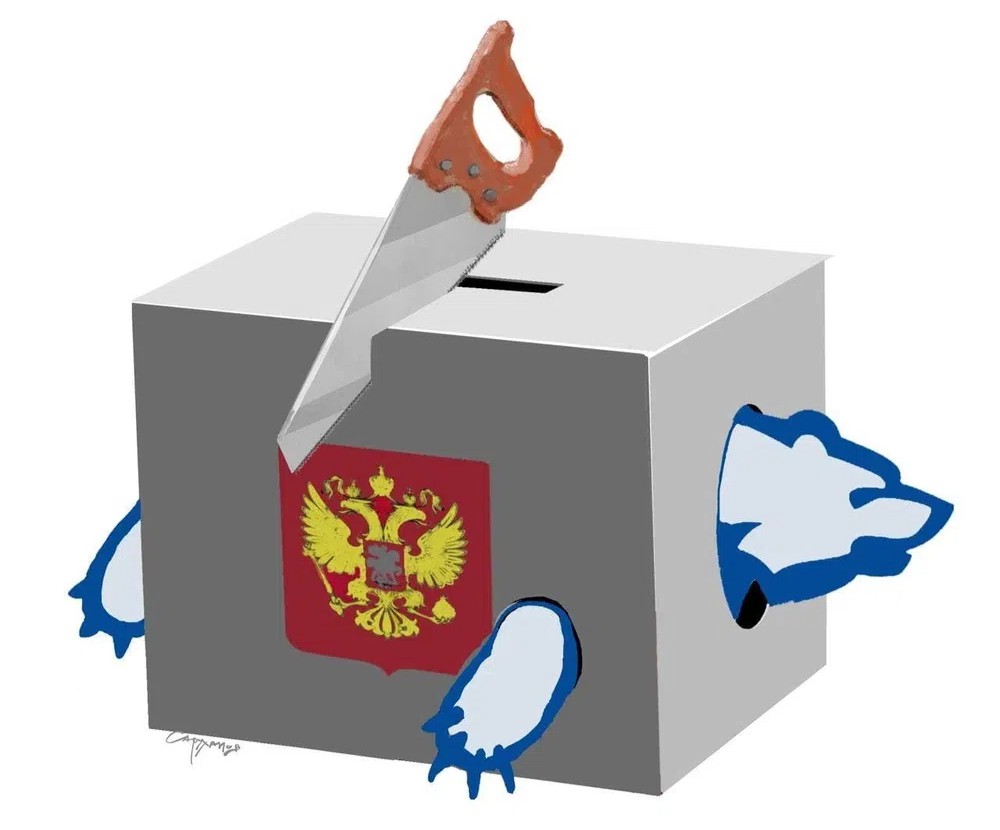
Petr Sarukhanov / "Novaya Gazeta"
“We believe that if the information is confirmed, then the inevitability of punishment of those guilty, including criminal liability, should be ensured, especially if it is qualified as a group conspiracy,” they said.
WIDER CONTEXT OF ELECTORAL FRAUD. This past week has seen other instances of bald-faced voter manipulation and electoral fiddling. As Novaya has previously covered, it is commonplace for a variety of — sometimes bizarre — methods to be deployed around election time. For example, the Kremlin readies imposters to target opposition candidates in the upcoming election. This is a classic electoral confusion tactic in Putin’s Russia of course, with parties bearing similar names often standing against one another. They hope that voters intending to vote for the oppositionist will inadvertently vote for an imposter with a similar name.
SMART VOTING ALSO TARGETED. On September 6, Russian communications watchdog Roskomnadzor (RKN) also restricted access to Russia’s Smart Voting website, which facilitates efficient tactical voting in order to provide voters with the highest possible chance of defeating any Putin-aligned candidates.
BACKSTORY. Russia hasn't had a free or fair election since at least 2004. The country has a long history of falsifying election results, a tradition preserved from the Soviet era. Ballot stuffing, carousel voting, and outright falsification are systemic. Investigations into irregularities remain formal and never influence the final results. Novaya always receives countless messages from Russians who have been pressured into voting to manufacture broad public support for the ruling regime of Vladimir Putin. In 2020, Russia held a historic vote that allowed Putin to retain power until 2036. According to independent polling, just 25 percent of Russians supported prolonging Putin's rule, while 40-50 percent were planning to vote in favor of his power-grabbing amendments. But the official result was that 78 percent of the Russian populace had voted in favor. We have broken down some of the other methods beloved by the Russian government here.
Read all about it, here.
Direct Link Between Kremlin and Donbas Violence, Exposed
Novaya’s data investigations team has sifted through two thousand OSCE reports from war-torn eastern Ukraine over the past seven years. The region has since been through twenty failed ceasefires. Our data suggests that flare-ups have changed in nature depending on the stage of the conflict. Violent eruptions seem to closely correspond with Kremlin campaigns to exert political pressure on Ukraine, and indicate a direct correlation between ceasefire violations and Russian political and information warfare.
SPRING 2021 — BIGGEST FLARE UP FOR YEARS. In the spring of 2021, another flare-up took place in Donbas. Interest in the conflict also grew to the highest it’s been in four years, according to Google Trends. The OSCE recorded about 200 violations weekly, and since the beginning of 2021, more than a thousand. However, the number of violations in the spring did not even come close to January-February 2017 levels, when active battles were fought in Donbas for the last time.
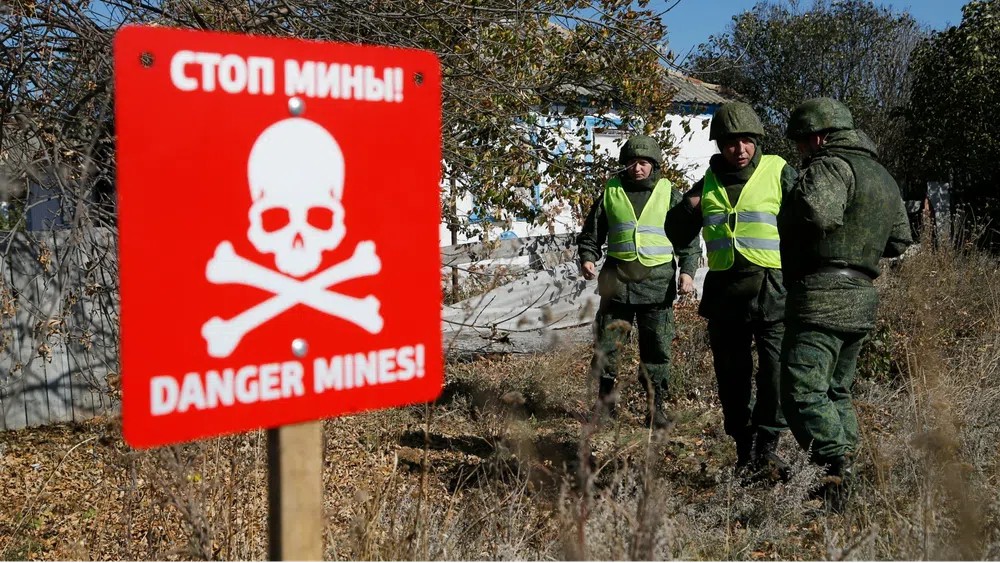
Photo: EPA
DATAVIZ OF CONFLICT INTENSITY. In our linked report, we break down the different stages of the conflict, and the intensity of the flareup. We use different colored charts to indicate the number of violations recorded within a week. We had something of a difficult time developing full reports for 2014-2015 and the full scale of violent flare ups back there remains unknown. As tensions escalated this year, Russia was posting troops to its border with Ukraine and Crimea, and in April, according to NATO assessments, there were more than 100,000 military deployed.
DESPITE ASSURANCES TO THE WEST, RUSSIAN SOLDIERS FROM THE MILITARY BUILDUP NEXT TO UKRAINE HAVE NEVER LEFT. Apart from the 2021 buildup, the Russian government dramatically increased its military presence in the region and along the Russian-Ukrainian border in all directions. The unprecedented 2021 buildup made global headlines and scored Putin an ego-boosting summit with the U.S. president Joe Biden. However, despite Moscow assurances, the majority of the troops have never left the border. This is a proven Russian military tactic, claims Ruslan Leviev from the Conflict Intelligence Team (CIT):
“Both the war with Georgia in 2008 and the war in Donbas in 2014 began the same way: Moscow transferred troops en masse for ‘exercises,’ then they would withdraw some of them, but most of the equipment remained. Later they would send it across the border to bolster further occupation.’
LINKS TO KREMLIN’S POLITICAL PRESSURE ON UKRAINE. Around the same time that the conflict flared earlier in the year, Ukrainian authorities imposed sanctions against politician Viktor Medvedchuk, a Putin’s main fixer in Ukraine, and also blocked pro-Russian TV channels that are associated with Medvedchuk's party. The Kremlin has been known to coordinate political pressure, information warfare and boots-on-the-ground attacks for many years. For example, before Russia and Georgia went to war in 2008, cyber-attacks were already being launched against a large number of Georgian governmental websites, which made it “among the first cases in which an international political and military conflict was accompanied — or even preceded — by a coordinated cyber offensive,” according to academics Július Baráth and Marcel Haraka. There are also some indications that similar tactics were deployed when Belarus violently stifled nationwide protests a year ago.
BACKSTORY. The so-called "Donetsk People's Republic" and "Luhansk People's Republic" remain home to 3,000,000 residents despite heavy fighting sporadically breaking out in the area. The breakaway territories became self-proclaimed statelets after the 2014 pro-democratic revolution in Ukraine. The separatist movement was part of the Kremlin attempt to preserve political and economic control over the country. As then-president of Ukrainian president Yanukovych fled to Russia, Moscow annexed the Ukrainian region of Crimea while stoking unrest in the country's eastern regions — effectively establishing control over 7 percent of the Ukrainian territory. At the time, Russian state propaganda manufactured a false narrative of an ethnic divide in Ukraine. It has been using it as an excuse to keep meddling in Ukrainian affairs since then. Moscow has never officially acknowledged the invasion of Eastern Ukraine. Still, the presence of Russian troops on the ground is well-documented , including by Novaya. The seven-year war has left approximately 13,500 dead, 1.6 million internally displaced, and over 800,000 refugees.
Read all about it, here.
Rising Discrimination of Migrant Kids, Explained
Russian schools have little or no understanding of how to deal with the children of migrants — so they decide to fear them. State indifference, conflicts among teachers and students, and the diminishing role of NGOs inside Russia all very much work against them. Novaya columnist and teacher Irina Lukyanova investigates.
LEARNING IN NON-NATIVE LANGUAGE. “In schools in the Moscow region, for example, there are classes that are almost fully populated with children for whom Russian is not their native tongue,” Lukyanova notes. “If the language of instruction is not native for most of the students in the classroom, they learn poorly and adapt badly to school and society.” Sometimes these children have an incredibly diverse variety of socioeconomic and cultural backgrounds.
“Refugees from Afghanistan, to British expats, or Russian citizens from Chechnya and Dagestan to North Korean embassy employees. What they have in common is that the language of instruction is not native — and that our education system does not really know what to do with them.”
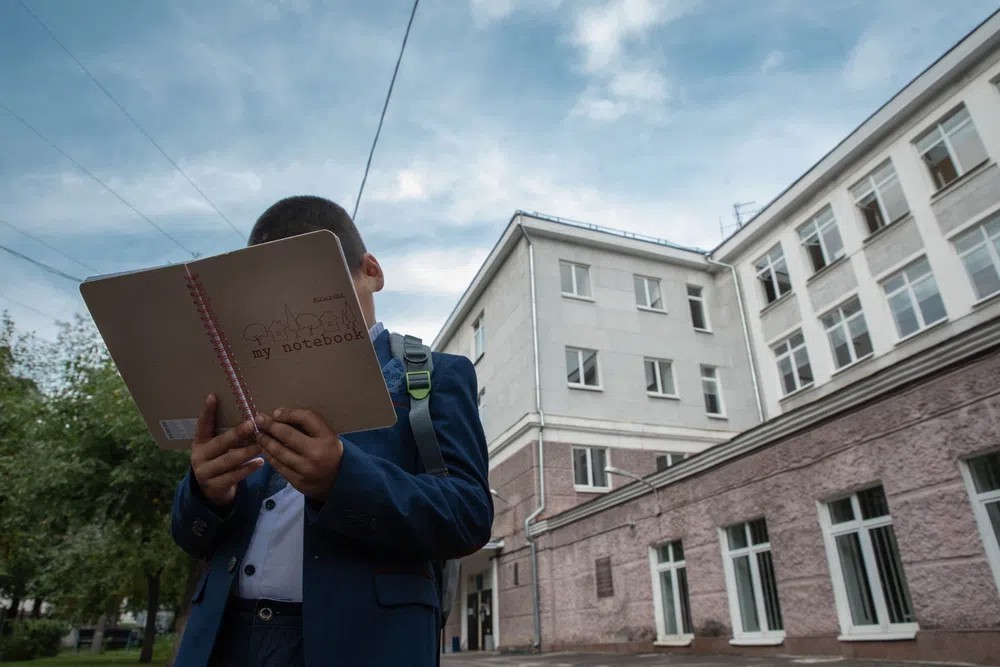
Photo: Victoria Odissonova / "Novaya Gazeta"
DECLINE IN SPECIALIST SCHOOLS. While in 2008, there were around 80 specialist schools that allowed children to at least partially study in their native language. By the 2014/15 academic year, the number of schools including an ethnocultural component dropped to 50 and continued to decline in subsequent years, writes Lukyanova. As Moscow schools started to be unified into large complexes, the concept of schools with an ethnocultural component gave way to the idea of forced inclusion.
COMPETING FOR PLACES. This decline means that there is more competition in the existing school system too. Schools can accept children from other regions if they have free spaces, but the absence of vacancies is part of the reason why migrant children are often denied education at several different institutions. While formally, if a school has the space, it must accept a student, it can create conditions under which a child cannot attend school. For example, by only offering a place in first grade to a 13-year-old. Olga Pavlova from the Integration Center for Refugee and Migrant children notes that there are possible other solutions.
“They do not have to be grouped by age, they can be grouped by their level of knowledge of the Russian language,” she said.
RESPONSE FROM DEPARTMENT OF EDUCATION. Novaya reached out to the Department of Education, which sent back a statement: “The Russian Language Schools project has been operating since 2006 and was organized by way of structural units of educational organizations that implement programs for the intensive training of migrant children in the state (Russian) language, their socio-psychological and cultural-linguistic adaptation. Currently the project is not functioning.”
Putin has previously stated that “when the level of migrant children at school reaches a certain percentage, local residents take their children out of these schools.” Xenophobia has remained strong in Russian society.
BACKSTORY. Migrant workers make up a sizable portion of Russia's workforce. In 2019, there were 19 million foreigners officially working in Russia. And that's only those with legal documents. According to some estimates, some 60% of migrants are in the country illegally. Despite their contribution, Russian authorities are notorious for their mistreatment of labor migrants and xenophobia, racial profiling are endemic. Deporting labor migrants critical of the government is also common. The majority of migrant workers come to Russia from former Russian colonies in Central Asia, where poverty remains widespread. The COVID-19 pandemic led to a severe lack of foreign labor migrants, who were effectively banned from the country. After the collapse of the Soviet Union, increasing efforts were made to accommodate the growing population migrating from neighboring countries. In accordance with the 1992 Law on Education, schools were required to accept migrant children. Teaching was conducted in Russian, but children could study their native language, and those whose native language was Russian could learn Armenian, Azerbaijani, Georgian, Lithuanian or Tatar languages. However, during Putin's rule most protections for minority languages were dismantled and migrant assimilation programs turned into de-facto forced Russification of migrants.
Read all about it, here.
Bonus Round
Russian independent journalism is still being eroded in newer and uglier ways, on pretty much a weekly basis.
The latest outfit to fall victim to new legislation is the TV channel ‘Dozhd’ (‘Rain’). In response, the Russian media community has developed a package of amendments to the current legislation on ‘foreign agents’. The list of 12 proposals, put together by Novaya Editor-in-Chief Dmitry Muratov, as well as journalists from various other independent and/or regional outlets, includes the following provisions.
1. The inclusion of mass media in the list of “foreign agents” … should be carried out exclusively in court. There should be a warning procedure prior to the inclusion of media on such a list.
2. Legislation should clearly define the concepts of “political activity” and “lobbying”.
3. The Ministry of Justice must determine in whose interests the media “foreign agent” is operating, to prove … “political activity”, as well as the connection between the availability of foreign funding and “political activity” in the interests of a particular government or organization.
The move to chip away at Dozhd resulted in an outcry from several international organizations, including Amnesty International which said, “these latest designations further prove that the Kremlin is unleashing its repressive ‘foreign agents’ law against independent media and decimating unbiased reporting and investigative journalism in the country.” Read all about it, here.
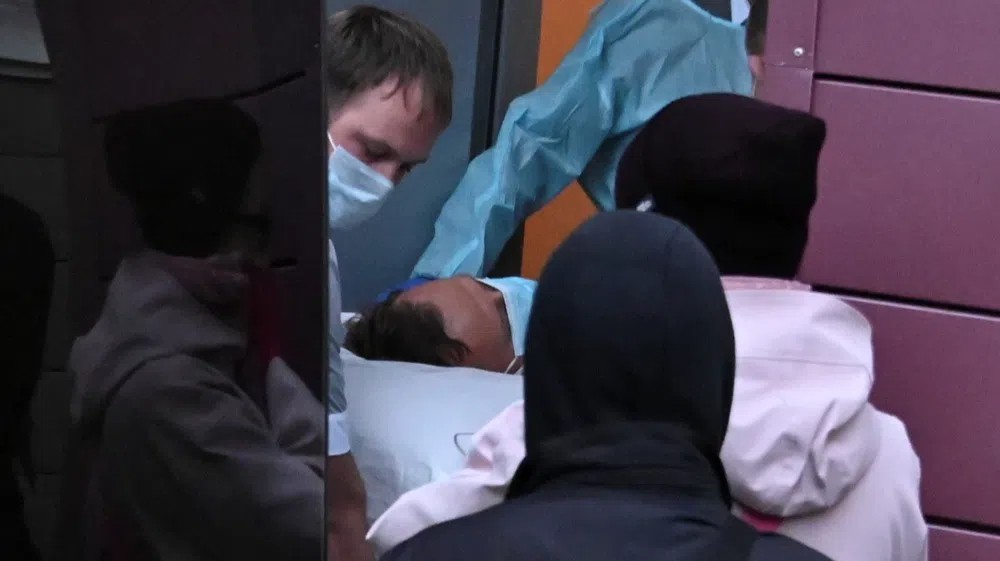
Photo: Reuters
New details in the Navalny poisoning.
Our columnist Yulia Latynina spoke exclusively with Moscow doctor Andrei Volna who recently published his expert opinion on Russian opposition politician Alexei Navalny’s poisoning. Medical records from the time appeared to have been, ahem, doctored. We discussed discrepancies between his medical histories and the official versions. In Navalny’s “unofficial” case history, for example, constricted pupils associated with his particular form of poisoning are clearly noted, but in later documents they are recorded as normal. “From my point of view, medical assistance provided was not complete in this case. Since the correct (and obvious) diagnosis was not formulated,” he tells Novaya. “The doctor should always be on the patient's side. Where the doctor allows himself to behave against the interests of the patient, medicine ends there.” Read all about it, here.
